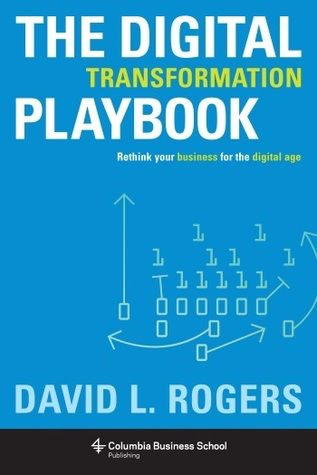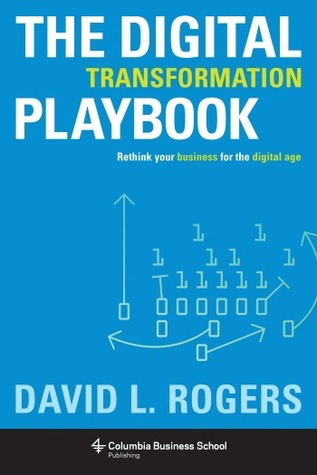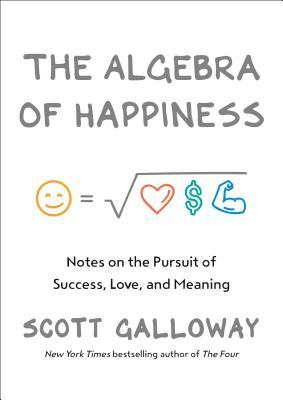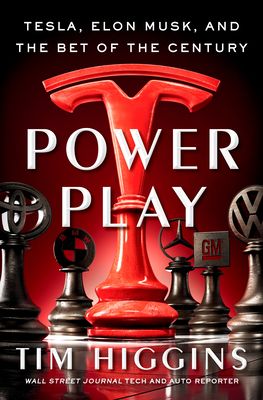The Digital Transformation Playbook by David Rogers

My Rating of “The Digital Transformation Playbook” by David Rogers: 9 / 10

I’ve read a number of books around digital disruption and its impact in many industries. Yet, digital transformation is a very common term which is becoming loosely used by many organisations. Given the acceleration of innovation and the ability for start-ups to hit the ground running quickly using technology it is clear one has to innovate or die.
Yet, most books cover off the various aspects of digital transformation but not necessarily a full end to end playbook. For example, there are books about disruption itself, however, Rogers clearly defines digital disruption in a different light to one of digital transformation. Moreover Rogers classifies the five areas of transformation (Customers, Competition, Data, Innovation and Value) along with the areas of focus organisations need to take. I wholeheartedly agree with the concepts of harnessing networks and establishing a platform play. Turning data into assets is a no brainer in today’s world; data is the new oil. Finally the two chapters on experimentation and value proposition certainly left me thinking.
Books like this are good to read even when you’re immersed in the industry. I’ve worked in the world of digital and transformation for many years. Reading this book was great as it allowed me to take a step back and align to what’s happening outside of my world and where things are changing; and they are changing rapidly. For those not in the digital world, this book comes with many tools and assessment to determine where you and/or your organisation are at when it comes to digital transformation. Highly recommended!
Three key takeaways from the book:
- Digital transformation is fundamentally not about technology but about strategy. And you have to make that strategy happen!
- To master value creation in the digital age, businesses must learn how to continuously adapt their value proposition.
- In the digital age, relying on an unchanging value proposition is inviting challenge and eventual disruption via new competitors.




